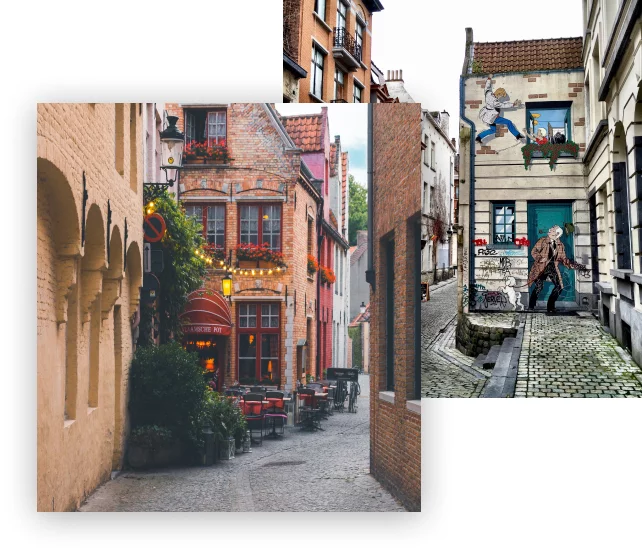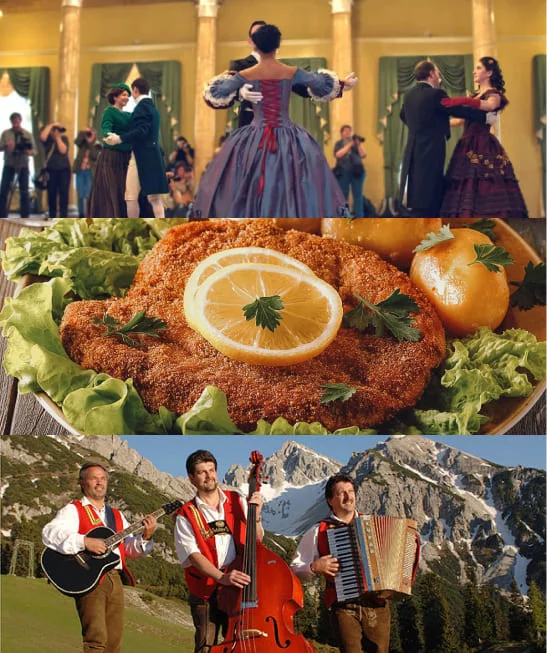Study in
Discover Belgium
Your Passport to Knowledge and Natural Wonders
Belgium, located in the heart of Europe, is a country known for its rich history, diverse culture, and high-quality education. With its unique combination of French, Dutch, and German-speaking regions, Belgium offers a vibrant and multicultural environment perfect for international students. The country’s educational system is renowned for its academic excellence and cutting-edge research opportunities.
Belgium is home to prestigious universities like KU Leuven, Ghent University, and Université Catholique de Louvain, offering a wide range of programs in English for international students. Whether you’re interested in science, business, engineering, arts, or social sciences, Belgium offers world-class education in a multilingual and multicultural setting.

Discover Belgium
Student Visas
Obtaining a student visa is an essential part of studying in Belgium. The student visa allows international students to live and study in Belgium legally. Here’s what you’ll need to do to apply for a student visa to Belgium:
To study in Belgium, Indian students typically need a Type D visa (long stay visa) for stays longer than 90 days. The application process includes:
- Proof of acceptance into a Belgian university.
- Proof of financial resources to cover tuition fees and living expenses (typically around €800-€1,000 per month).
- Health insurance valid in Belgium.
- Proof of language proficiency (either French, Dutch, or English depending on the program).
- Accommodation proof during your stay in Belgium.
International students can also work part-time while studying (up to 20 hours per week), which can help cover living expenses.
Scholarships for Indian Students
Belgium offers various scholarships for international students, including those from India, to help with tuition fees and living costs.
- The VLIR-UOS Scholarships: These scholarships are available for students from developing countries, including India, to pursue Master’s or training programs in Belgium. They cover tuition fees, living costs, travel, and insurance.
- Erasmus Mundus Scholarships: These scholarships are available for students from non-EU countries to pursue joint Master’s and PhD programs in Belgium and other European countries.
- Government of Flanders Scholarships: The government of Flanders offers scholarships to students from India for postgraduate programs, particularly in fields like science, technology, and engineering.
- University-specific Scholarships: Many Belgian universities offer merit-based scholarships for international students. These scholarships vary by institution and program.
Popular Courses
Belgium is home to a wide variety of programs across different fields of study. Some of the most popular courses for international students include:
- Business and Management: Belgium has some of the best business schools in Europe, such as the Solvay Brussels School of Economics and Management and Antwerp Management School. These institutions offer competitive MBA and management programs.
- Engineering and Technology: Belgium is renowned for its engineering programs, especially in fields like civil, mechanical, electrical, and computer engineering. KU Leuven and Ghent University are famous for their research and innovation in these areas.
- Social Sciences and International Relations: Belgium, with its political significance in Europe (home to the EU), is an excellent destination for students studying international relations, diplomacy, and European politics.
- Arts and Design: Belgium offers top-tier programs in visual arts, design, and architecture. Royal Academy of Fine Arts (Antwerp) and La Cambre (Brussels) are highly regarded for their art and design programs.
- Sciences and Health: Belgium is known for its advancements in scientific research, particularly in biomedicine, pharmacology, and environmental science.
Student Life
(A) Cost of living for Students
Belgium’s cost of living varies depending on the city. Major cities like Brussels and Antwerp tend to be more expensive, but smaller cities like Ghent and Leuven can be more affordable. On average, students should budget €800-€1,200 per month for living expenses, including rent, food, transport, and leisure activities.
Tuition fees for non-EU students typically range between €800 and €4,000 per year for undergraduate programs and can go up to €12,000-€18,000 per year for postgraduate programs, depending on the university and program.

Student Life
(B) Part-Time Work Opportunities
Belgium allows international students to work part-time while studying, which can help supplement living expenses. Students can work up to 20 hours per week during the academic year and full-time during the holidays. Common part-time jobs include working in cafes, retail, tutoring, or administrative support at universities.
Part-time work offers a great way to gain experience and immerse yourself in Belgian culture.


Student Life
(C) Internship Opportunities
Belgium is home to many multinational companies, organizations, and institutions that offer excellent internship opportunities. Many university programs, especially in fields like business, engineering, and technology, include mandatory internships as part of the curriculum.
Internships offer valuable work experience, and students can also take advantage of Belgium’s location as a hub for European and international organizations to gain professional connections and exposure.
Student Life
Cultural Experience
Belgium offers a rich cultural experience for international students, from its medieval cities to its modern cultural festivals. Students can explore Brussels, the capital of the European Union, or visit the beautiful city of Bruges, known for its historic canals and architecture.
Belgium is also famous for its music festivals, including Tomorrowland and Gentse Feesten, offering students the chance to enjoy a vibrant arts and music scene. Additionally, students can indulge in Belgian cuisine, with world-renowned chocolates, waffles, and beer to enjoy.
Cultural integration is easy, with universities offering various student clubs, societies, and cultural activities. Indian students will also find a strong community through cultural organizations and associations that celebrate Indian festivals like Diwali and Holi.

